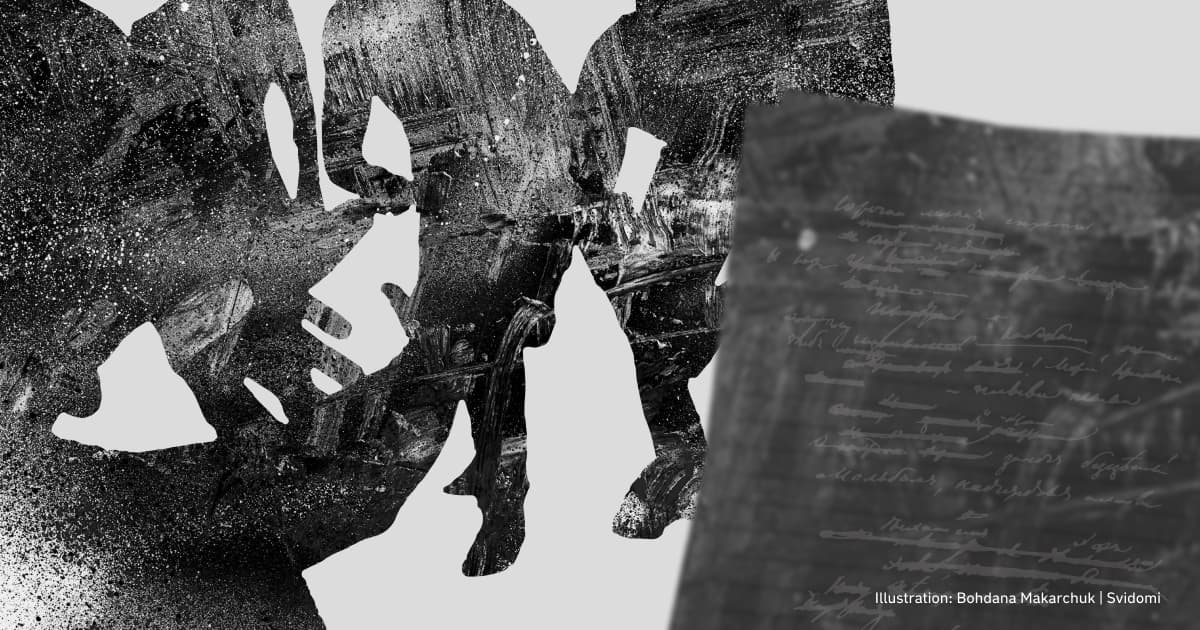The story of a former soldier from Tokmak: ‘They beat me with boots and pointed rifles at my head. There were about ten of them. They came in three cars.’

Andrii Kravetskyi (name changed for security reasons) lived in Tokmak (Zaporizhzhia region) for 50 years. In 2014, he joined the military, served in his hometown, and then retired. On February 24, 2022, he was at home. He sent his children and wife to a safe place and went to the Territorial Centre of Recruitment and Social Support (TCRSS). However, he could not join the army for certain reasons.
At the end of 2023, Andrii managed to go to Zaporizhzhia, where he went to the police and testified about the events he had experienced during the occupation. Together with the Charitable Organization "Charity Foundation "East-SOS" and the Ukrainian Helsinki Human Rights Union, he filed a complaint with the European Court of Human Rights.
Since 2014, East SOS has been collecting information on war crimes committed by representatives of the Russian Federation to ensure justice and the right to truth. Mariia Biliakova recorded Andrii's story, and Anton Litvinenko wrote the text.
Below is the first-person narrative.

In the town of Tokmak, I encountered a full-scale war: the Russians bombed our airfield, and our military fired back. When the draft was announced, I went to the TCRSS but did not join the service. The town was small, and everyone knew each other, so I decided to stay. My wife and children left.
One day, on the eve of Easter, my dog started barking in the evening. I went outside and saw Russian special forces; they had helmets, flashlights, and shields. They put me on the ground while I was in my underwear and handcuffed me. They beat me with boots, pointed rifles at my head, and asked many incomprehensible questions. There were about ten of them. They came in three cars.
After beating me, they dragged me through the garden and backyard. Then they took me into the house and beat me again: on the head, on the back, and on the liver. They were all wearing balaclavas. I know that two of them were from the 'LPR' and 'DPR' because their uniforms differed.
They took my documents and asked me: "Why did you serve?", "Why didn't you continue your service?", "Give us the names of those who continued to serve. Do you know them?" They asked about my children, even about my parents, who had died long ago. They came prepared. Someone had snitched on me.
When they left, they told me to pick up the documents at the police station the next day. I went and waited for several hours. I asked someone, but they didn't know anything. Later, the commander took me to the medical unit and gave me a hospital pass. The soldiers put me in an ambulance and took me to intensive care, where I spent five days. After that, I was on drips for another two weeks. The doctor who treated me miraculously escaped from Tokmak.
No one touched me until February 2023. On February 23, ten people came to my yard again, this time some Russian counter-intelligence. They beat me again, but at least I had my clothes on. They put me in a chair, handcuffed me, asked me the same questions, turned everything upside down again and took away what the previous soldiers hadn't managed to steal.
They beat me again: on the ear, on the jaw, and hit me 20 times on the head with an encyclopedia of Ukraine and two other books. They kicked me in the knees with their boots, and my left knee still hurts. They searched for Anti-Terrorist Operation (ATO) participants and police officers using so-called 'lists.' They beat us, broke our limbs, threatened us, and followed us. Some of us stayed, but I can't understand them.

It was daily stress: bombings, raids, lack of sleep; even pills and alcohol did not help. Every day, they evicted people from their apartments or moved into those from which someone had left. Did they like your house? You don't have it anymore. Documents for the house, an occupier's passport, or anything else will not help. They take a grinder or break the glass, break into your house, and rob you.
There were traitors and collaborators in the city. However, some were forced to get passports. These passports were necessary at every step, for example, to get utilities or a pension. There was no proper medical care; the doctors had left.
At some point, I finally decided to evacuate to Zaporizhzhia, taking only a small bag with me. There was no way to take anything else. I realised I couldn't stay. If I stayed, they would have taken me to the trenches to join the enemy or killed me.
The article is a publication of the Charitable Organization "Charity Foundation "East-SOS" within the framework of the project "Support to war-affected vulnerable groups and residents of remote areas of Ukraine" with the financial support of the European Union. The contents are the sole responsibility of the Foundation and do not necessarily reflect the views of the EU.


